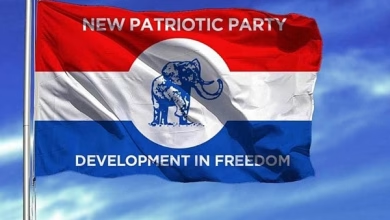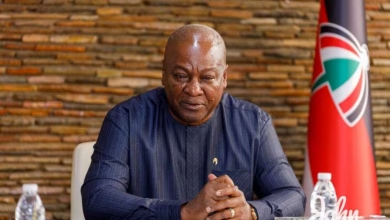Shallie Abbiusi Drags Ghana To ECOWAS Court For $1m In Damages

- Belgian citizen Shallie Abbiusi has taken the Republic of Ghana to the Economic Community of West African States (ECOWAS) Court of Justice, seeking damages of $1 million.
- The writ begins with a declaration asserting the entitlement of every individual within Ghana's jurisdiction to internationally recognised human rights
- It argues that Ghana's actions not only violated Abbiusi's rights but also undermined the principles of justice and fair treatment.
Belgian citizen Shallie Abbiusi has taken the Republic of Ghana to the Economic Community of West African States (ECOWAS) Court of Justice, seeking damages of $1 million.
Abbiusi’s legal action stems from alleged violations of her human rights during her time in Ghana, particularly focusing on her detention and treatment by Ghanaian authorities.
The legal proceedings, outlined in a writ submitted to the ECOWAS Court, paint a picture of alleged human rights infringements that Abbiusi claims are in violation of international conventions and agreements to which Ghana is a signatory.
The writ begins with a declaration asserting the entitlement of every individual within Ghana’s jurisdiction to internationally recognised human rights, as established in various documents including the Universal Declaration of Human Rights and the African Charter on Human and Peoples’ Rights.
Abbiusi’s case revolves around several key points, including the violation of her rights to liberty, security, fair hearing, administrative justice, equality before the law, freedom from discrimination, and freedom of movement.
She argues that these rights, enshrined in international agreements and Ghana’s own constitution, were infringed upon during her stay in the country.
The writ details Abbiusi’s experiences, stating that she arrived in Ghana legally in 2017 and became the spokesperson for a new movement called the New Force.
It describes her arrest by Ghanaian authorities following an invitation for questioning related to her residency permit. Abbiusi alleges that what was meant to be a routine inquiry turned into an unlawful detention without due process, including denial of access to legal counsel and threats of deportation.
Furthermore, Abbiusi claims that despite legal actions taken to defend her rights, including filing motions and seeking disclosure of documents, Ghanaian authorities continued to disregard her rights and eventually deported her to Belgium, ignoring the ongoing legal proceedings in Ghana.
The writ emphasises Ghana’s obligations under ECOWAS treaties, international human rights instruments, and its own constitution to protect the rights of all individuals within its borders.
It argues that Ghana’s actions not only violated Abbiusi’s rights but also undermined the principles of justice and fair treatment.






